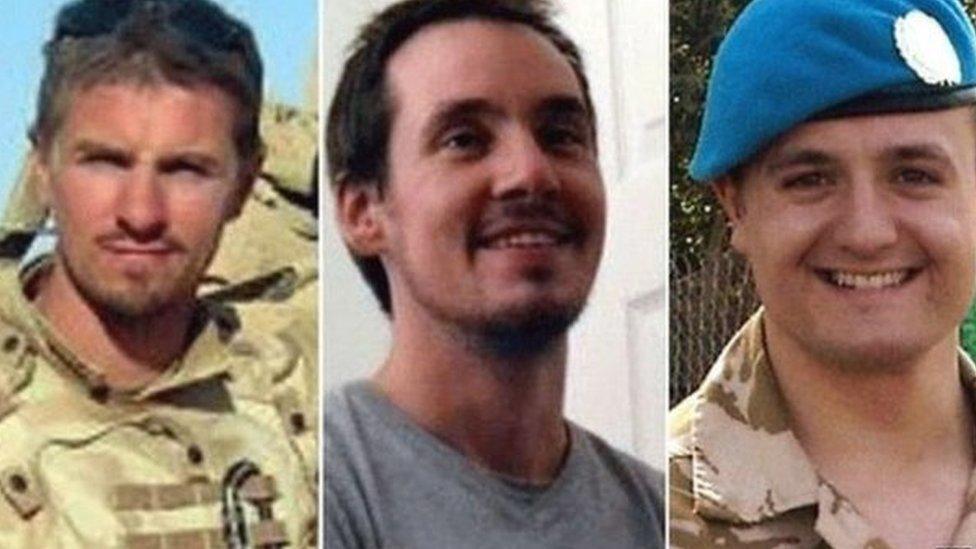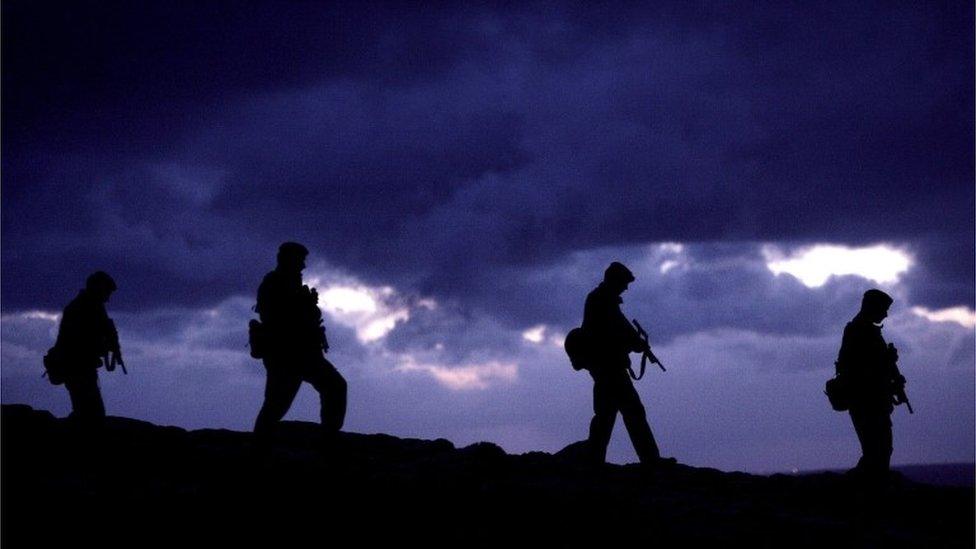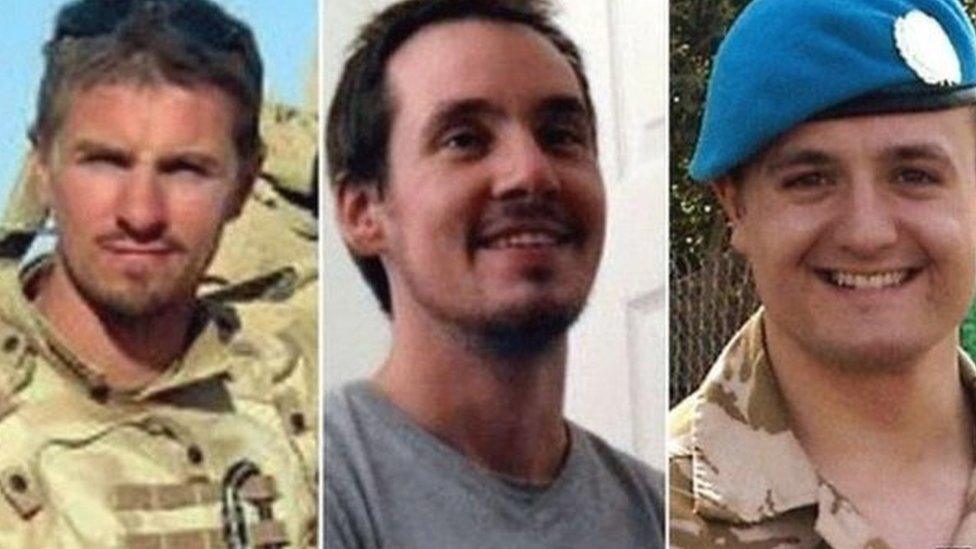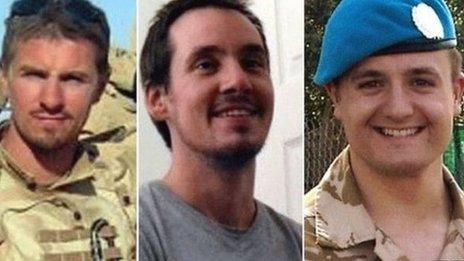Brecon Beacons SAS deaths: Call for MoD to face courts
- Published

Cpl James Dunsby, L/Cpl Edward Maher and L/Cpl Craig Roberts died in July 2013
The Ministry of Defence has not learned lessons from the deaths of three men on an SAS march and should lose its immunity from prosecution, an MP says.
Madeleine Moon believes "systemic failures" are continuing in the armed forces five years after the reservists collapsed in the Brecon Beacons.
Two men who had overseen the selection exercise were acquitted of negligence at a court martial and a lawyer said they had been "scapegoats".
The MoD has been asked to comment.
Bryher Dunsby: 'Apparently three deaths are not enough to incite change'
L/Cpl Craig Roberts, 24, from Penrhyn Bay, Conwy, L/Cpl Edward Maher, 31 and from Winchester, Hampshire, and Cpl James Dunsby, 31, from from Solihull, West Midlands, died after the trek during which they carried up to 27kg (4st) on their backs on one of the hottest days of 2013.
A serving officer and former warrant officer, who faced court martial, denied negligence on the 16-mile march.
Judge Jeff Blackett said they had no case to answer at Bulford Military Court on Tuesday.
He found their lack of training on heat illness and risk assessments meant that other servicemen in their position would not have acted differently.
Bridgend MP Ms Moon, who is a member of the Defence Select Committee, said the judge had been "absolutely clear" that there had been systemic failures.
"There seems to be an absolute failure to learn lessons in the MoD which is why I'm calling for their crown immunity to be removed because they're not learning lessons," she said.
"I would like to see the Ministry of Defence be very clear that they will be prosecuted where these deaths take place.
"We ask people to step forward and join the armed forces and place their life on the line in the theatre of battle.
"We should not ask them to step forward and face death when they're on a training or selection exercise."

The Brecon Beacons are used by the Armed Forces for training exercises
But Adrian Weale, an ex-Army intelligence officer who now writes about defence matters, said it was important to remember that soldiers' training needed to be tough to prepare them for battle.
"It was an extremely hot day (in 2013) but you're expecting the soldiers who are volunteering for the special forces to have to do that if they're in Iraq or Afghanistan - conditions will be very arduous there."
But he added he backed the removal of crown immunity: "Clearly things went wrong in this exercise and if they hadn't been addressed then they need to be."
Following the court martial, Cpl Dunsby's widow Bryher Dunsby said the hearing had revealed the "shocking reality that there is still no official guidance for those conducting endurance training marches in the British Army on heat illness".
"Apparently three deaths are not enough to incite change," she added.
Clare Stevens, who represented Cpl Dunsby's father at the inquest into his death, said the two men who were put on put on trial were "scapegoats for those at the top".
"The MoD is immune from prosecution under health and safety legislation... that is simply not good enough," she said.
What is crown immunity?

Hilary Meredith, a visiting professor of law and veterans' affairs at the University of Chester, said the MoD has always had crown immunity against prosecution in criminal cases - but the law changed in 1987 to remove the immunity in civil cases.
It means that injured soldiers or families of those who have died in service can sue for damages in the civil courts - although this does not apply for injuries which happened during battle.
She has been involved in civil cases against the MoD for 30 years and said these have highlighted health and safety failings in the armed forces.
She said the MoD had immunity from being prosecuted under the Health and Safety at Work Act and Corporate Manslaughter and Homicide Act.
But she believed this should be removed to ensure lessons are truly learned from its failures.
"I agree that training in the armed forces needs to be realistic and I'm only talking about rare circumstances that prosecutions would be brought - the bar for this is very high, when there is a clear reckless disregard for life," she said.
"I have only seen three cases where this should have happened during the last 30 years.
"But instead what happens is the MoD receives a censure - it's just a piece of paper. There are no fines or sanctions. You can't send a corporation to jail but the fines can be in the millions and it's then that you will see change."
- Published18 September 2018

- Published13 September 2018

- Published11 September 2018

- Published14 July 2015
